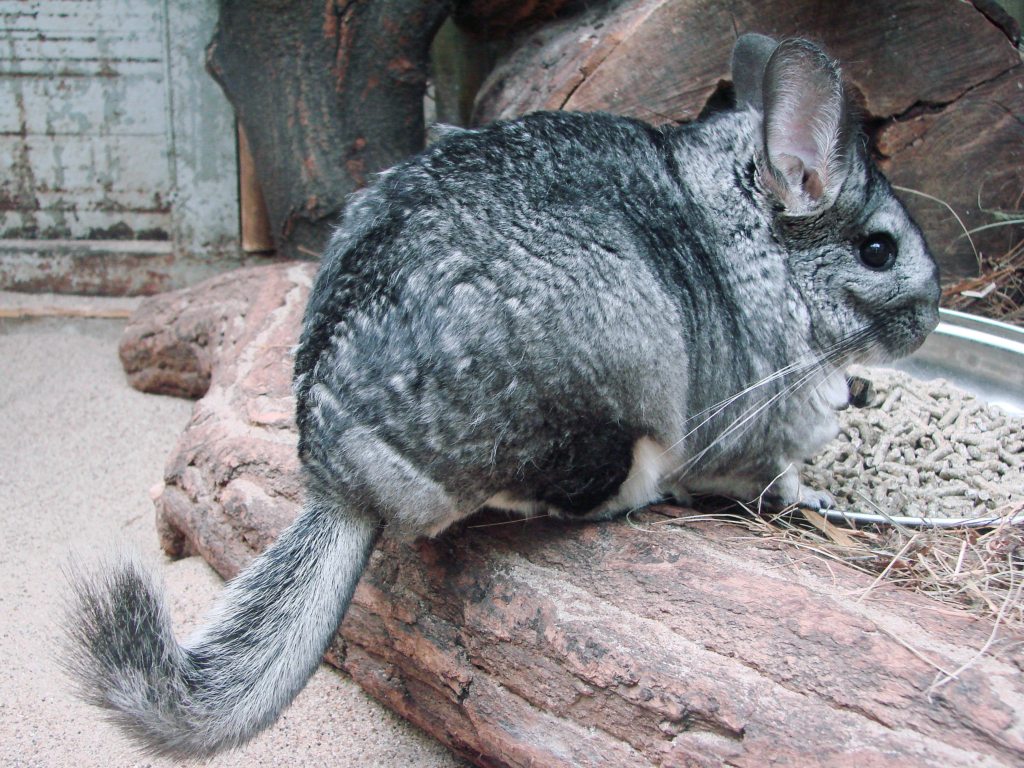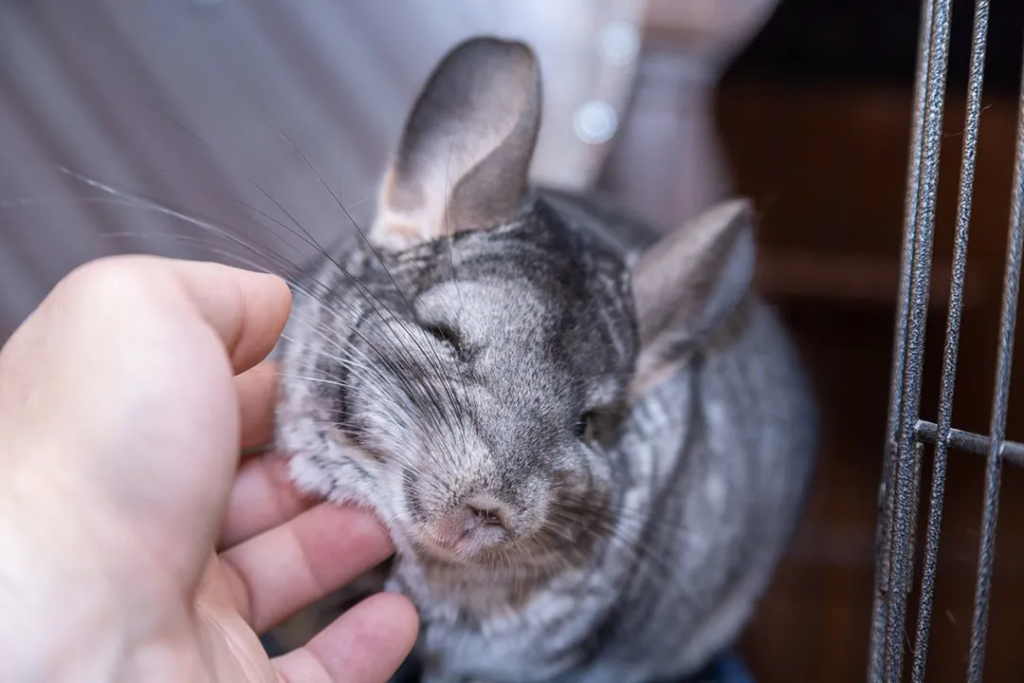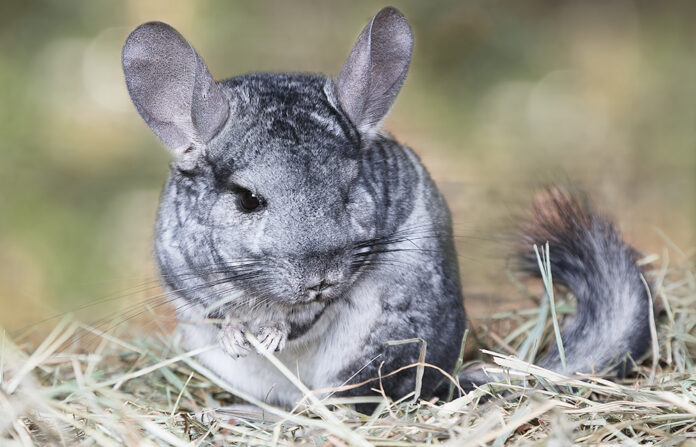Last Updated on November 10, 2023 by Fumipets
Understanding the Cost of Owning a Chinchilla: A Comprehensive Guide
Owning a chinchilla can be a rewarding experience, but it’s essential to consider the associated costs. From the initial purchase to ongoing expenses, this guide provides insights into how much it really costs to have a chinchilla as a pet.
How Much Does a Chinchilla Cost?
Despite being regarded as unusual pets, chinchillas are quite cheap to maintain and care for in comparison to other exotic animals. These little mice are a wonderful alternative for pet owners on a budget since, after the initial fees, they are not very expensive to maintain.
Nevertheless, since they are exotic animals, veterinary expenses for them are often greater than for other tiny pets. They last a very long period, and these expenses may accumulate over time. We’ll go through all the prerequisites for having a Chinchilla in this post, along with all the expenses involved. Let’s get going!
Bringing Home a New Chinchilla: One-Time Costs
First off, depending on the breeder and the color of the Chinchilla, the initial cost of the animal itself might vary greatly. Typically, standard grey Chinchillas are less expensive. Breeders charge between $80 and $150 for chinchillas. If you can locate colored Chinchillas at all, they are much more costly. Chinchillas of lineage or show qualities may also command high prices.
In addition to the chinchilla, you’ll need a sturdy cage big enough to provide your pet room to climb and play. Aside from the Chin itself, this is the most costly thing.
Free
Numerous would-be Chinchilla owners instantly assume that one of these attractive animals would make a wonderful companion without doing the required study. Despite their little size, chinchillas need a lot of care, and many people buy them without understanding it. Owners are often eager to give them away for free in these circumstances, with the cage and accessories!
Some Chinchilla owners nearby could also have a couple of animals that had unintentionally mated, and they might be eager to give the offspring away for free.
Adoption
$50-$100
We strongly advise adopting a Chin from a shelter as this is a fantastic opportunity to give these little animals a second chance. These animals are given to shelters by owners who did not realize how much care a Chinchilla requires. There are often minimal charges associated with adopting a chinchilla from a shelter, but they are normally far lower than buying one from a breeder. Additionally, you’ll be providing a Chinchilla in need with a home!
Look in the ads, online, at the SPCA or adoption center in your community. A Chinchilla could be looking for a home.

Breeder
$150-$400
Despite the fact that exotic pets are often more costly, since chinchillas have been domesticated for a very long time and there are many trustworthy breeders in the area, you may anticipate paying between $150 and $400 for one. They should ideally have some kind of breeder’s organization registration and be able to provide references from satisfied customers. Again, the price of a Chinchilla purchased from a breeder will depend on availability, lineage, and coloration; in certain situations, they may cost up to $400.
We strongly advise against purchasing chinchillas from pet retailers. You can never be sure of the health or ancestry of these animals since they are often raised in subpar circumstances merely to generate money.
Long-tailed and short-tailed Chinchillas are the two different variations that are available. Although short tails are often larger, with thicker hair and heavier bodies, there is no difference between the two breeds in terms of price or disposition.
Supplies
$300-$500
Chinchillas need a lot of area for vertical climbing, therefore their cage may sometimes wind up costing more than the animal itself. The more space that is provided for them in their cage, the better. You will need a cage that is at least 30 inches wide by 48 inches high. Additionally, you’ll want many wooden ledges for them to play on and rest on, as well as food bowls, drink bottles, a dust bathing house, chew toys, and nesting boxes, all of which quickly add up.
List of Chinchilla Care Supplies and Cost
| Cage | $200-$300 |
| Climbing ledges, ladders, and ramps | $5-$30 |
| Metal or ceramic food dish | $4-$10 |
| Water bottle (glass) | $5-$25 |
| Dust bathing house | $10-$15 |
| Chew toys | $5-$10 |
| Nesting box | $10-$15 |
| Hay Feeder | $5-$10 |
| Running wheel (optional) | $10 |
| Hammock/bed | $10-$15 |
| Carrier | $15-$30 |
Annual Expenses
$300-$350 per year
Additionally, your Chinchilla will need chew toys, snacks, bathing dust, timothy hay, and food (pellets and fresh fruit and vegetables). For a single Chinchilla, these continuing expenses will cost around $25 per month. This is a rough estimate, but we suggest budgeting a little bit extra. Purchases of high-quality, long-lasting toys and accessories as well as food and hay in bulk may greatly reduce expenditures.
Health Care
$200-$300 per year
Although chinchillas are typically healthy creatures who seldom get sick, they nevertheless need yearly exams to ensure everything is in order. These examinations are often more costly than normal since they include exotic animals. However, there are certain expenses you may save since chinchillas don’t need immunizations and are seldom ever fixed or spayed. In actuality, spaying female animals is very risky, and most veterinarians won’t do it.
Check-Ups
$50-$100 per year
Depending on the veterinarian you choose, a routine examination will run you around $50, but since chinchillas are considered exotic animals, these costs might go up, so plan on spending at least $100 to be safe. However, these regular examinations are crucial since they might end up saving you a lot of money if anything goes wrong in the future.
Treatments for Parasites
$0-$50 per year
Chinchillas may get worms and other parasites, like the majority of other tiny mammals, but it is rather uncommon if your cage is maintained clean and healthy. The most prevalent parasite in chinchillas is giardia, however even this is not a serious problem if diagnosed early. Consult your veterinarian right away if your Chinchilla isn’t eating, appears lethargic, or has diarrhea since these are all indications of a potential parasite infection.
Emergencies
$50-$200 per year
Regardless of whether you have insurance or not, it’s a good idea to have a few hundred dollars put up for a rainy day even though chinchillas are generally healthy animals. Accidents can occur sometimes, so it’s important to be ready. This shouldn’t be a problem if you take excellent care of your Chinchilla, and you probably won’t need the money, but it’s still a good idea.
Insurance
$120-$250 per year
Insurance for your Chinchilla might cost anywhere from $10 and $20 per month, depending on the supplier you pick. Exotic animals may be more costly to insure and may not even be covered by all providers, so be sure to check with them first. Even with insurance, it’s a wise idea to have a rainy day fund. Although it is entirely up to you as the owner, because chinchillas are generally healthy creatures, insurance is usually not necessary.
Food
$60-$150 per year
The primary foods that chinchillas should consume are fresh Timothy hay and pelleted food, with the occasional serving of nutritious treats. Chinchillas are little creatures that do not consume large quantities of food. The best course of action is to buy food in bulk since you will end up saving quite a bit of money. The cost of food will probably be the largest continuing expense of keeping a chinchilla, so you should purchase the finest food you can to keep them healthy and happy.

Environment Maintenance
$100-$150 per year
Chinchillas need high-quality bedding or a fleece liner at the bottom of their cage, much as all other tiny mammals do. Their cage will be much more pleasant to dwell in with bedding since it will absorb smells. You should choose bedding that is dust-free, absorbent, and suitable for consumption. The greatest bedding is made of paper since it is both affordable and non-toxic.
Chinchillas also like taking a dust bath, therefore they’ll require a specific dust to keep themselves clean and maintain the health of their coat. Although it might be pretty expensive, this dust lasts for a very long time.
| Bedding | $100/year |
| Dust | $20-$30/year |
| Fleece lining (optional) | $10 |
| Dedicated trash can | $30 |
Entertainment
$10-$50 per year
Chinchillas are very energetic, lively creatures that need items in their cage that are both cognitively and physically engaging to keep them occupied. One thing they must have is dust baths, but they also like other improvements. They will require a large, secure wheel to keep them moving, as well as different-sized climbing ledges, ropes and ladders, chewing blocks, a hammock, and a nesting hut. Although many of them will be one-time purchases, some may ultimately be destroyed by your chinchilla and need yearly replacement.
Total Annual Cost of Owning a Chinchilla
$200-$350 per year
The average monthly cost for your Chinchilla’s food and care, after the initial purchase expenditures are paid for, is between $20 and $30. Naturally, this is assuming no medical emergency, which could easily increase your yearly expense to $800 or more. However, if you provide your Chinchilla with the right care, nourishment, and upkeep, you may significantly reduce the chance of health problems and extend the length of its happy, healthy life. Although they are a very cheap pet, chinchillas may live up to 10 years in captivity, thus beyond that time, their lengthy lifespan might result in large bills!
Owning a Chinchilla On a Budget
There isn’t really a way to cut corners when it comes to Chinchilla ownership, and you shouldn’t try! Aside from the initial cost of the Chinchilla and any required equipment, they are quite cheap to care for. Adopting a Chinchilla from a shelter and purchasing a used cage are the greatest ways to save money. By doing this, you’ll save money and assist a Chinchilla in need.
Conclusion
Particularly if you choose the adoption method, chinchillas are quite affordable and simple to care for as pets. The initial investment may be substantial, but if you use used equipment, it will be far cheaper. If you don’t have any medical crises, having a Chinchilla should only cost you $200 to $350 per year in basic upkeep and feeding expenses. Chinchillas are resilient and robust animals, so vet appointments are often restricted to routine examinations.
You should think twice before rushing out to get a chinchilla even if they are relatively affordable pets since they still need a lot of care.
Frequently Asked Questions:
How much does it cost to buy a chinchilla?
The cost of purchasing a chinchilla varies based on factors like breed, age, and color. On average, prices range from $75 to $300, with rare colors or special breeds potentially costing more.
What are the ongoing expenses for a chinchilla?
Ongoing expenses include food, bedding, and veterinary care. High-quality chinchilla pellets can cost around $10 to $20 per month, while bedding may range from $5 to $15 per month. Veterinary costs can vary but may include periodic check-ups and potential emergency expenses.
Do chinchillas require special housing?
Yes, chinchillas need a spacious cage with multiple levels for exercise. The cost of a suitable cage can range from $100 to $300, depending on size and features.
Are there grooming expenses for chinchillas?
Chinchillas have specific grooming needs, including dust baths. Chinchilla dust costs around $5 to $15 per pack, and a bathhouse can be an additional $10 to $20.
What about toys and accessories for chinchillas?
Chinchillas thrive with mental stimulation. Investing in toys, tunnels, and accessories can range from $20 to $50 initially, with occasional replacements as needed.

















